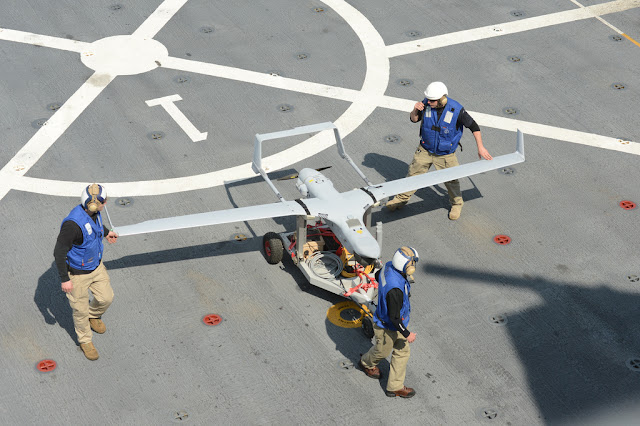Insitu Inc.'s RQ-21A small tactical unmanned aircraft system for the U.S. military has entered a new phase of development testing.
Earlier this week Insitu, the U.S. Navy and the U.S. Marine Corps conducted the first flight operation test of the aircraft on the East Coast in preparation for integrated operational test and evaluation in the fall.
During the flight operators launched the RQ-21A using a pneumatic launcher, flew it for nearly two hours and then recovered it with a special system that eliminates the need for a runway.
"This test period brings us closer to providing our warfighter with a unique capability -- an indigenous UAS capable of operations from both land and sea," said U.S. Marine Corps Col. Jim Rector, PMA-263 program manager. "The expeditionary nature of the RQ-21A makes it possible to deploy a multi-intelligence capable UAS with minimal footprint."
The RQ-21A is designed for use by Marine Expeditionary Forces, Navy L-Class ships, and Naval Special Warfare units. It is slated for initial deployment next year and will provide users with reconnaissance, surveillance, and target acquisition data.
According to the Navy, the tests now being conducted in Maryland are to validate updates to the system, which include software, fuselage and camera enhancements.
The conditions at Webster Field at Naval Air Station Patuxent River also "allow the team to test aircraft performance points at lower density altitudes."
The small unmanned aircraft completed land-based testing in China Lake, Calif., and ship-based developmental tests aboard USS Mesa Verde in February.
[via]
Earlier this week Insitu, the U.S. Navy and the U.S. Marine Corps conducted the first flight operation test of the aircraft on the East Coast in preparation for integrated operational test and evaluation in the fall.
During the flight operators launched the RQ-21A using a pneumatic launcher, flew it for nearly two hours and then recovered it with a special system that eliminates the need for a runway.
"This test period brings us closer to providing our warfighter with a unique capability -- an indigenous UAS capable of operations from both land and sea," said U.S. Marine Corps Col. Jim Rector, PMA-263 program manager. "The expeditionary nature of the RQ-21A makes it possible to deploy a multi-intelligence capable UAS with minimal footprint."
The RQ-21A is designed for use by Marine Expeditionary Forces, Navy L-Class ships, and Naval Special Warfare units. It is slated for initial deployment next year and will provide users with reconnaissance, surveillance, and target acquisition data.
According to the Navy, the tests now being conducted in Maryland are to validate updates to the system, which include software, fuselage and camera enhancements.
The conditions at Webster Field at Naval Air Station Patuxent River also "allow the team to test aircraft performance points at lower density altitudes."
The small unmanned aircraft completed land-based testing in China Lake, Calif., and ship-based developmental tests aboard USS Mesa Verde in February.
[via]





Post A Comment:
0 comments:
Post a Comment